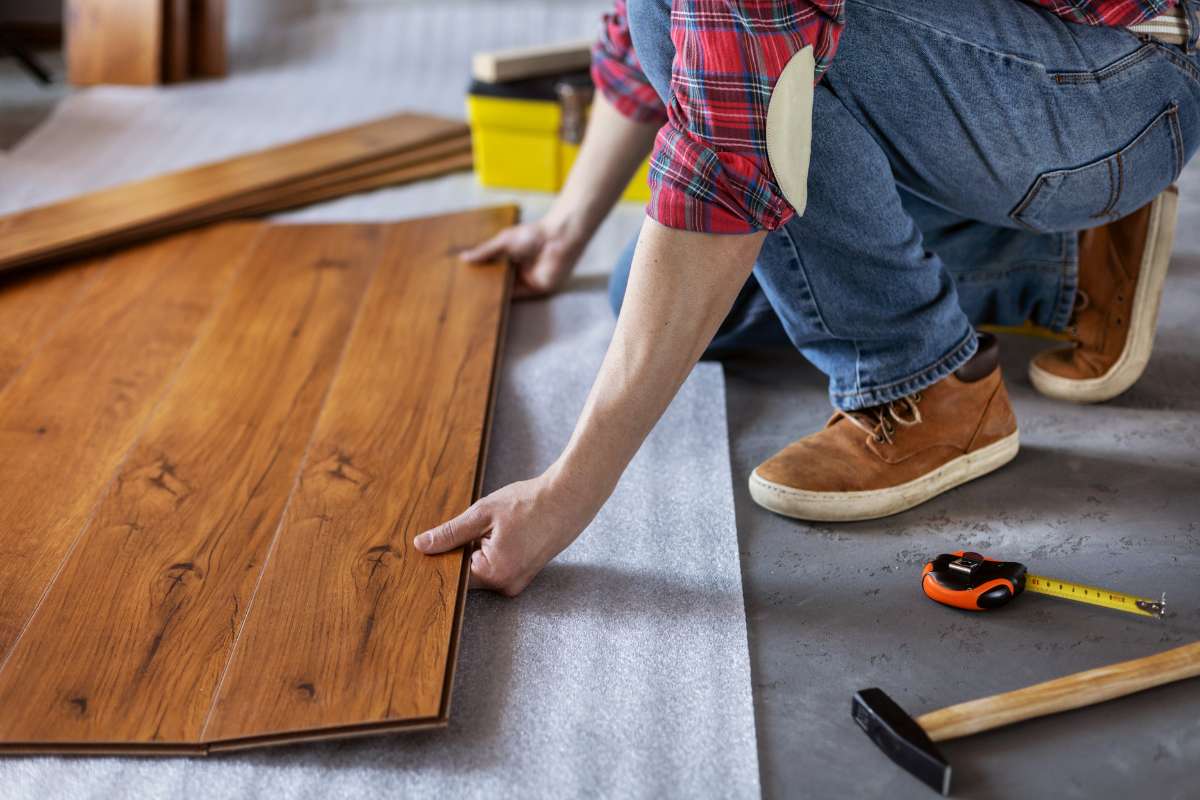Renovating your kitchen is an exciting journey, and as home renovation contractors, we recognize the impact the right flooring choice can make on both the aesthetics and functionality of your space.

With the sheer abundance of options available, it can feel overwhelming to identify the perfect match for your kitchen.
The flooring you choose should not only withstand daily foot traffic and wear, but also elevate the overall style and quality of your renovation.
Popular Kitchen Flooring Materials
The most commonly used materials for kitchen flooring include ceramic tile, porcelain tile, vinyl flooring, hardwood flooring, laminate flooring, and natural stone. Each of these materials brings unique features and advantages, making them suitable for different kitchen settings.
Whether durability, maintenance ease, or visual appeal is your priority, you'll find a flooring option that caters to your specific requirements.
Key Considerations for Kitchen Flooring
When planning a home renovation, it's likely you already have some flooring options in mind. It's crucial to consider both the functional pros and cons as well as the long-term appeal and potential impact on your home's resale value.
We'll guide you through the advantages and disadvantages of different flooring materials, taking into account factors such as wear and tear, budget, and resistance to foot traffic and stains.
Ceramic and Porcelain Tiles
These tiles are a popular choice due to their durability and wide design selection. They resist stains well and are easy to clean, making them perfect for a busy kitchen. However, they can feel cold underfoot. Ceramic tiles are usually budget-friendly, while porcelain tiles are costlier due to their higher density and strength.
Vinyl Flooring
Another budget-friendly option is vinyl flooring. It offers both durability and design versatility, even mimicking natural materials like wood or stone. While it is stain-resistant, comfortable, and easy to clean, it might not be as durable as other options and may be susceptible to damage from sharp objects.
Hardwood Flooring
Hardwood flooring lends a timeless elegance to kitchens and can boost your home's resale value. Though it requires regular maintenance to prevent water damage and scratches, it lends a classy touch. It's not the best option for areas with high moisture or traffic, such as near the sink or dishwasher.
Laminate Flooring
As a budget-friendly alternative to hardwood, laminate flooring can mimic its appearance while being resistant to stains, scratches, and wear. It may not handle excessive moisture or water spills well, making it less ideal for high-moisture kitchen areas.
Natural Stone
Natural stone, like granite or marble, exudes luxury and elegance. It's highly durable and can handle heavy foot traffic but requires regular sealing to prevent staining. It can also be expensive and feel cold underfoot.
Future-Proofing Your Home
Future-proofing your house for potential buyers is an important consideration. Neutral color palettes and classic designs usually have wider appeal, adapting easily to changing trends. Choosing durable flooring materials that can withstand wear and tear over time is also crucial to ensure your kitchen flooring remains appealing for potential buyers.
In conclusion, selecting the right kitchen flooring material involves a balance between functionality and long-term value. Consider your kitchen's specific needs, foot traffic level, and budget before planning. Choosing a durable, stain-resistant flooring option that aligns with your style can create a kitchen space that withstands daily use while also enhancing your home's overall appeal and value.
Questions to Ask Your Home Renovation Contractor
When embarking on a kitchen remodel, understanding your flooring needs and options is vital. Asking the right questions can help you make informed decisions and guarantee a successful outcome for your kitchen flooring. Here are some crucial questions to ask your home renovation contractor before the project begins:
What are the eco-friendly flooring options available for kitchens?
What are the best flooring types for kitchens in terms of durability and low maintenance?
Which flooring material is best suited for kitchens prone to water damage?
Do you recommend professional installation for the kitchen flooring?
How can I align my flooring choices with my budget?
By seeking answers to these questions, you can gather valuable information, allowing you to choose the best flooring material for your kitchen remodel. A well-informed decision will ensure that your kitchen floor is not only visually pleasing but also functional, durable, and perfectly suited to your specific needs.
Quality construction on demand
You deserve a quality contractor that helps your house become a home. Don’t settle for good enough. Choose Cross Iron Renovations to take care of your home from start to finish. Through ethical home building and good trusted trades, your renovation will last a lifetime.
Contact Cross Iron to kick-start your home renovation dreams.